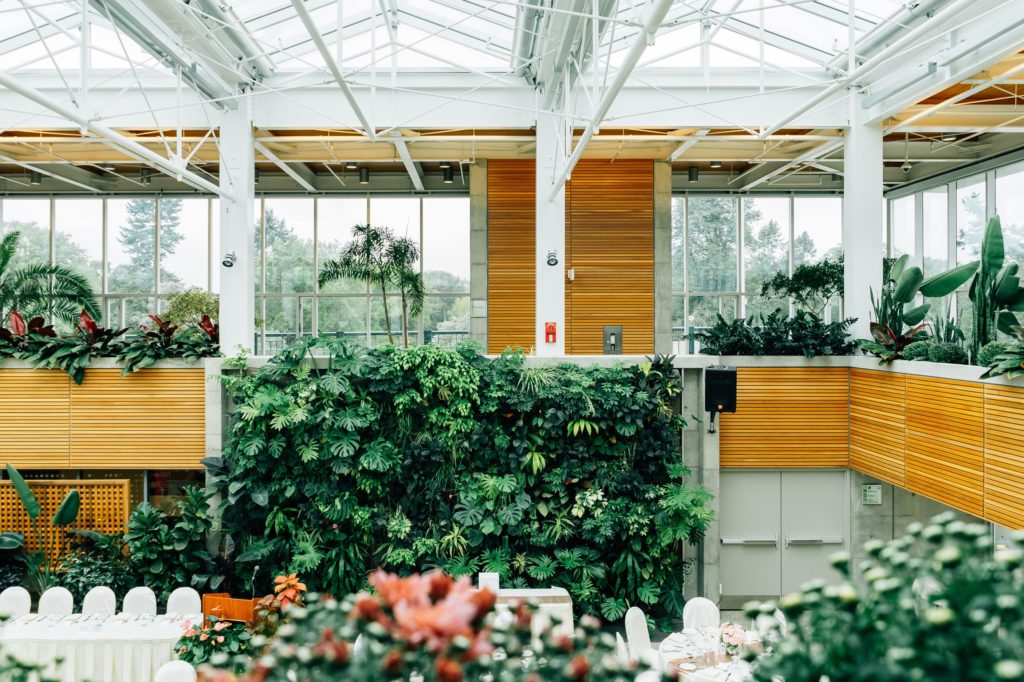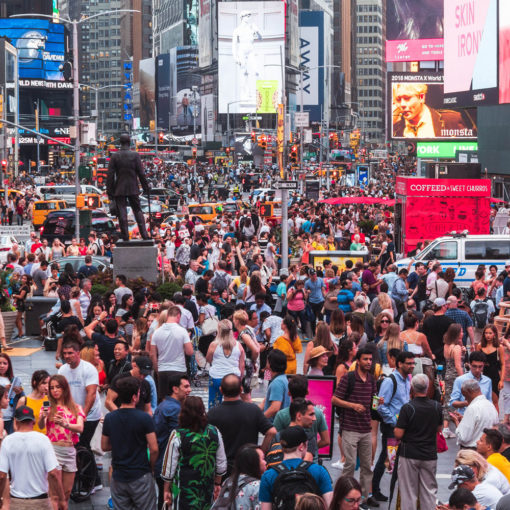Share This Article
The new year has just begun and many avid travelers are already planning their 2020 itineraries. Now that the number of travelers who prefer eco-friendly activities and accommodations is on the rise, we’re looking ahead for some of the hottest and emerging sustainable travel trends for next year. Before you book that trip you’ve been dying to take, read on and get inspired to travel the earth-friendly, Wayaj way!
The Journey vs The Destination
In 2020 you may be more inclined to slow down and value your travel journey as much as the destination. “Slow Travel” is increasing in popularity with more travelers opting to take in the sights in a more mindful way. Instead of flying, take the train or drive in to enjoy the views and experiences on the way. Take your time exploring a new city on bike so you can truly absorb the landscape and local communities. As a result, slow travel can potentially reduce your carbon footprint, and gives travelers the chance to explore and support locally-run businesses from volunteer organizations to guesthouses.
Flying Sustainably
Electric aviation is on the rise! According to a survey by Booking.com, 87% of all tourists want more sustainable travel options, and airlines are taking note with aviation now shifting towards electric powered aircraft and biofuels. Major operators, startups, and space agencies, like NASA, have already gotten the ball rolling, but the trend is really looking to take flight (pun intended) in 2020 with commercial operators also beginning production. EasyJet and Ryanair airlines have already begun plans to fly electric passenger jets over the next decade, and U.S.-based startup Wright Electric plans to make short-term electric planes the standard for flights in the Middle East in the next 20 years. This will create lower emissions and less noise, which will in turn offset aviation’s environmental impact. Aircrafts are also switching to biofuels in an effort to reduce carbon emissions. File this under innovations we’re looking forward to!
Second-City Travel
Travel off the beaten path and explore a lesser-known city in the new year. Second-city travel is a destination that may not be as popular as the first city that comes to mind when thinking of a country. For example, New York City might be considered a first city in the United States. A second city might be Chicago. But what are the benefits of second-city travel? Visiting lesser-known destinations can reduce the effects of over-tourism in more popular cities and protect the environment.

Off-Season Travel
If your heart is still set on traveling to a “first city,” consider off-season travel instead. Off-season travel is the time of year when the least amount of tourist activity takes place in a destination. This helps alleviate over-tourism and lessens the impact on the local environment and infrastructure. If that isn’t convincing enough, travel is usually cheaper during this time. Overall it’s a great way to save the environment and a few coins at the same time… win-win!
Travel Planned By Technology
According to the previously mentioned survey by Booking.com, an overwhelming amount of travelers want sustainable travel options and are even willing to go out of their way and spend more to ensure low environmental impact. This, coupled with the fact that more consumers are using apps to help them find and book activities and accommodations leads us to believe that we’ll see more travelers using platforms, like the Wayaj app, to help them travel sustainably. With technology constantly evolving, an increase in travelers using applications with artificial intelligence to get them through their trips is more than expected.
Extinct Tourism
As climate change reshapes more regions around the world, extinction rates also increase. As a result, there are many travel experiences that may not be around much longer. In the new year, the rush to see and experience animals that may soon be extinct will surely increase. Instead of traditional zoos, we could also see a trend towards spaces that favor animals’ well-being over their ability to be seen by humans.

Vegan Hotels
Veganism has grown immensely in popularity over the past decade, and now the hotel industry is catching up. From Saorsa 1875 in Scotland to Hilton London Bankside, there is a new and growing wave of hotels offering 100% animal-free products and experiences to cater to this demographic. This goes well beyond a vegan menu. Think earthy toiletries, shampoo and conditioners made with vegetable extracts, furniture made from bamboo and natural leather alternatives, the absence of wool, silk or feather duvets and more. This is big for sustainable travel! According to the Vegan Society, if the whole world went vegan by 2050, it would save eight million human lives and reduce greenhouse gases by two thirds.
AI-Designed Menus
In 2020 we can expect more hotels to use technology and artificial intelligence to reduce food waste. Earlier this year InterContinental Hotels Group announced its partnership with tech company Winnow to help hotels reduce food waste… with the assistance of technology. Hotels are able to track the amount of food wasted, which in turn helps management make more informed and sustainable decisions about how much of each item and ingredient from their dishes need to be purchased to achieve 30% reduction in food waste.
Biophilia and Indoor Greenery
Anyone with a green thumb or love for plants will tell you how beneficial indoor greenery is. Studies show that they help us breathe easier, reduce stress, clean the air, and improve our health and mood, to name a few. Given the benefits, it makes sense that hotels, restaurants, and guesthouses alike are adding greenery and vertical gardens to their indoor spaces. Not only does it benefit our well being, but it also creates beautiful, instagrammable backdrops.

Saying Goodbye to Single-Use Toiletries
The California legislature recently passed a bill that will ban single-use toiletries at hotels by 2023 in hopes of drastically minimizing waste. Other states and lawmakers are following suit with New York State Senator Todd Kaminsky introducing a similar bill with the same compliance deadline of 2023. As a result, in 2020 we can expect to see a growing trend of hotels ditching single-use plastic toiletries for more environmentally friendly options like soap dispensers.
Supporting Local Communities
It’s always a sobering sight to see luxury hotels situated in the middle of impoverished communities. While this may have been overlooked in the past, luxury hotels are moving into a trend that considers the quality of life for the local population as well as their bottom line. This is done by building an infrastructure that provides jobs, opportunities and resources for the local community.
Transformational Travel
Life-changing travel experiences? Sign us up! In 2020 travelers are increasingly moving passed experiential travel and into transformational travel. Instead of “living like a local,” travelers are seeking new destinations for personal development. According to Business Insider, travelers today want their journeys to be emotional and transformative, giving them the opportunity to learn and experience personal growth. This may mean taking part in restorative wellness activities, visiting and learning about nearby parks, volunteering with locals, and other enriching adventures.

Upcycled Furniture
The concept of upcycled furniture is becoming increasingly popular amongst hotels and restaurants alike. This involves taking old or discarded materials and objects to create furniture, and produces less waste while minimizing the need for new raw materials. From the newly launched Greet Hotel Beaune in Paris to the new 1 Hotel in West Hollywood, hotel brands are using something old to create new furniture for guests that factor in comfort as much as sustainability. The result is uniquely built, sustainable furniture that not only looks great but also benefits the environment in major ways that can lead to a reduction in water pollution, energy usage, air pollution and more.
Green Meetings and Events
The demand for more sustainable and socially responsible companies from consumers as well as employees continues to increase year after year. Studies also show that conducting business sustainably positively impacts shareholder value, builds a great reputation, saves money and more. So it’s no surprise that companies are taking note, stepping outside of the usual recycling bubble and adopting in-depth sustainability practices like selecting responsible suppliers and conducting green company meetings, conferences and events. This means choosing eco-friendly venues, supporting caterers who use locally-sourced and produced food and drink, and using carbon schemes to offset air mileage. We love to see it!
Carbon Footprint Offsetting Goes Mainstream
Although carbon footprint offsetting is far from new, it is, fortunately, becoming more mainstream! If you need a quick refresher, carbon footprint offsetting helps reduce carbon emissions which come from sources like deforestation and burning fossil fuels. With carbon offsetting we’re able to combat climate change and improve conditions for the environment. That said, the growing trend of mainstream media talking about carbon footprint offsetting and companies around the world creating resources to make it easier for travelers to offset their carbon footprint is a major step in the right direction. If you’re ready to join that movement (the grass is greener on this side!), you can check out Wayaj’s carbon footprint calculator to estimate accurately your carbon footprint while traveling and purchase emission reduction certificates in a transparent way.
As you can see, the upcoming decade is ripe with new trends and innovations that will take sustainable travel to new heights. Many of these trends not only benefit travelers like you but the environment at large; what more could we ask for? And with more people becoming aware of how travel impacts our environment and companies also taking note, we are sure we’ll be seeing even more new trends in eco-friendly travel in the very near future. Which trend are you looking forward to indulging in most?





